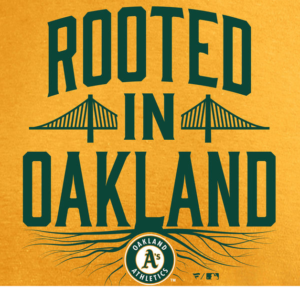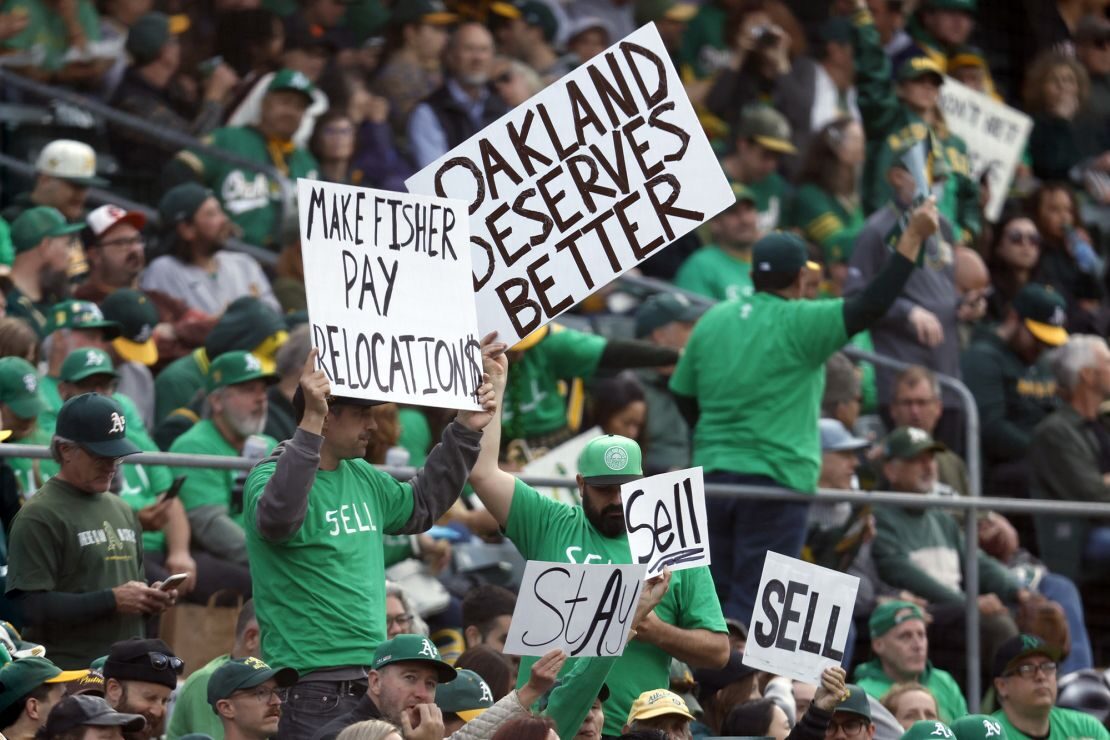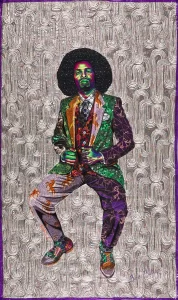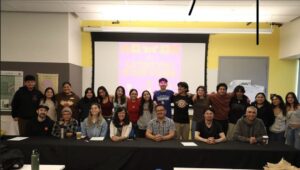Following the Golden State Warriors’ relocation in 2019 and the Raiders’ departure in 2020, Oakland faces another future loss: Major League Baseball (MLB) team, the Oakland Athletics. Since 1968, the Athletics, or the A’s, have resided in Oakland, but as of November 16, 2023, the MLB unanimously approved the proposed move to Las Vegas, vacating their current stadium, the Coliseum.

Because the Vegas stadium is not quite fully constructed, the team considered moving to Salt Lake City or sharing Oracle Park with the San Francisco Giants. However, the franchise ultimately decided to move to Sacramento until the Vegas stadium is ready in 2028. This has sparked many debates, protests and emotions surrounding whether the A’s should leave or not and what their motives for leaving are from loyal fans.
The team had been famously unsatisfied with the gnarly condition of their stadium for a while now. From the rodent and possum infestations, to the moths and even sewage issues. The city of Oakland attempted to accommodate the A’s requests, suggesting new and innovative ways a stadium could be built to house the team and had previously claimed they would follow through on building a new and more modern stadium for them. Despite the varying propositions, A’s majority owner, John Fisher, decided the move was the right decision for the franchise.
The A’s are currently in the final year of their lease, and their crowd attendance has been on steady decline. According to Baseball Reference, their overall attendance in the season, which has approximately 162 games, has dropped from over two million fans attending in 2014, to over 800,000 in 2023, to just over 100,000 in 2024. These factors aligned just in time for the team to make the choice to move cities.
Due to the longevity of their stay in Oakland, the A’s have accumulated a diehard fan base that has been taking drastic measures in order to get them to stay. For fans like Stu Clary, a Vacaville resident who gained attention across the media, the A’s move was extremely upsetting. For this reason, he and other fans who were distraught, organized a “reverse boycott,” where 27,759 fans showed up to the Oakland Coliseum holding posters, most of which carried messages requesting that Fisher sell the team. “The A’s belong in Oakland, and I think most people understand that,” Clary told NBC Bay Area.
Lick-Wilmerding High School A’s fan Aidan Baird ’25 explained that reverse boycotts consisted of fans tailgating outside of the Coliseum and shouting for the team to be passed on to a different organization that will keep them in Oakland. “‘Sell the team’ was a big chant,” he said.
In the wake of recent Bay Area team departures, Oakland’s professional teams all seem to be jumping ship. Sam Wolff ’24 expressed his disappointment. “In my opinion the Bay Area should be able to fit two MLB teams,” he said.
Looking past the emotional toll this move has taken on its fans, from a business standpoint, many believe it is the right decision. The SF Giants play-by play announcer, David Flemming, understands where John Fisher is coming from. “The Coliseum is a beautiful ballpark that has served its purpose, unfortunately it’s now rundown and that’s the crux of the issue,” he said.
At this point, there is not much the fans can do. “Even with the long-standing relationship and good intentions on all sides in the negotiations with Oakland, the conditions to achieve an agreement seemed out of reach. We understand the disappointment this news brings to our fans, as this season marks our final one in Oakland. Throughout this season, we will honor and celebrate our time in Oakland,” team owner Fisher explained in a statement to the media.
From reverse boycotts, to tailgating the Coliseum, to trying to build a new stadium from the ground up, the A’s might not be staying in Oakland for a multitude of reasons, but their fans sure have proved their loyalty. Their departure means less tourist attraction to Oakland, an already economically struggling city and that their fans are almost entirely unable to watch their games when they move, because a lot of MLB games are not nationally televised.






